Touch the lithophone, touch pride
* Mr. Thao, the sound of the Loc Hoa lithophone is the sound of the past, of rocks and mountains. What brought a young person like you to the ancient lithophone? Is there a very special, very strong “call” from the National Park?
- In 2018, when Loc Hoa lithophone was recognized as a National Park, Binh Phuoc province (old) opened a training course on lithophones and my opportunity came from there. The first time I touched the stone bars, I immediately felt the deep, resonant sound of the land and the great forest. The more I listened, the more curious I became, the more I was urged to learn, to find a way to make the soul and sound of the stone come out.
 |
| Mr. Nguyen Duy Thao performed lithophone at the Exhibition of Socio -Economic Achievements of the Country on the occasion of the 80th anniversary of National Day (September 2, 1945 - September 2, 2025). |
As a teacher of musical instruments for many years, I have had time to research the traditional arts of the ethnic groups: S'tieng, Thai, Tay, Khmer and learned that lithophone is a musical instrument with sophisticated crafting techniques of prehistoric people. That made me appreciate it even more and want to contribute to preserving and promoting it. Honestly, at that time, I saw many modern musical instruments that many people learned and knew and wondered: Why is a national park, a precious heritage not spread? It is that urge that has helped me stick with lithophone until now.
* Making the lithophone resonate again is not easy, especially when the National Park has a special history and structure. Can you share how you "understood" those seemingly lifeless stone slabs in the early days?
- The biggest difficulty when practicing lithophone is that there is no systematic, scientific method or technique recorded. Loc Hoa lithophone is very unique, complete and has the most tones. When I started, I had to explore, research and learn everything myself. There were even failures during the practice and performance process. At that time, I divided the practice process into 3 stages. First is experimentation: Touching, tapping the instrument, slowly simplifying to find the timbre and scale of each lithophone and choosing basic exercises. Then is finding mistakes, by tapping many times to get familiar with the lithophones, correcting mistakes in practice and performance posture. Finally, practice: Putting the music and exercises into practice to improve my level. I have selected and created suitable exercises to practice for myself and for future students.
Once I had grasped the spirit of the stone, I studied more techniques and methods of playing lithophones of the ethnic groups: Stieng, Thai, Tay, Khmer to incorporate into my lessons. The greatest joy was when I finally found the “voice” of the stone, making the music emitted from the stone blend into life.
* Loc Hoa lithophone is now a national museum, and being performed at major events such as the Exhibition of Socio-Economic Achievements of the Country on the occasion of the 80th anniversary of National Day (September 2, 1945 - September 2, 2025) is certainly a source of pride. But surely, like many patriotic artisans, your greatest desire is to bring this instrument back to the community, back to the young generation?
- For me, the National Museum is not for display but must live and resonate in people's hearts. Since 2018, when Binh Phuoc organized the first training class, I have always cherished the dream and later opened a lithophone class at the Children's House of Loc Ninh district and Thien Hung commune (old Bu Dop district). I want to simplify learning, so that the lithophone will no longer be too unfamiliar so that in the future it will reach many schools. Students can get acquainted and try playing on the lithophones with the version, get acquainted with the most basic methods, combined with learning the piano and organ. The joy is when seeing them not only study but also participate in competitions and win high prizes, like Nguyen Thai Hoa who just won first prize in solo performance. I believe that when these young buds grow up, their love for the lithophone will become part of their flesh and blood. That is the best and most sustainable way to keep the legacy alive.
* As someone who has a close relationship with the Loc Hoa lithophone, what special things do you think this instrument brings to listeners? How has the sound of the lithophone changed your life, changed your thinking about culture and your roots?
- The sound of lithophone is unlike any other musical instrument. It is the sound of the mountains, of the motherland, of the entire history of the country. When listening, we do not just hear a piece of music but also hear the echoes of our ancestors, a sacred connection with the past. The deep, resonant sound of the stone makes us feel like we are standing in the middle of the forest, seeing the most rustic, genuine nature of people and culture.
The sound of the lithophone has truly changed my life and my perception. Before, I was simply a music teacher. But since I started playing the lithophone, I understand that my job is not just to teach music notes but to preserve the flow of culture. It awakened in me a great pride in my roots and the talent of prehistoric Vietnamese people. I realized that my responsibility is not only limited to music but also that of a son of my ancestors' heritage. The lithophone has taught me patience, listening and boundless love for national culture.
Lithophone tells the story of Vietnam
* For dedicated artisans like you, there is always the desire to bring the national cultural heritage “overseas” - to bring this sacred sound to international friends. How have you tried so that the sound of the Loc Hoa lithophone not only resonates on the big stage in the country but also has the opportunity to “step out” into the world, telling the story of Vietnam’s origins through the language of stone and music?
- That is a great desire. Loc Hoa lithophone is over 3 thousand years old, considered a complete musical instrument, with the most tones, and has high value in musicology, ethnology, culture, archaeology and history. In particular, in terms of musicology, Loc Hoa lithophone can also be combined with many modern musical instruments. Recently, I was very proud to bring Loc Hoa lithophone to perform at the Exhibition of Socio-Economic Achievements of the Country on the occasion of the 80th anniversary of National Day (September 2, 1945 - September 2, 2025). The sound of the lithophone has been listened to by international friends, including the US Ambassador to Vietnam; Vietnamese representative participating in the performance at the ASEAN International Fair in Guangxi, China; organized practice and performance for 50 teachers and students to participate in the performance to welcome the 1st Congress of the Dong Nai Provincial Party Committee, term 2025-2030 at the end of September... These are big events, creating a buzz, leaving an unforgettable mark in the hearts of the people and international friends, thereby spreading the cultural value of Loc Hoa Lithophone National Park.
 |
| Mr. Nguyen Duy Thao took a souvenir photo with student Nguyen Thai Hoa - the first prize winner of the Dong Nai Province Youth Melody Contest 2025. Mr. Thao was the one who inspired and devoted himself to teaching Thai Hoa from the first days he learned about lithophone. |
* What plans are you nurturing so that the Loc Hoa lithophone is not only a displayed treasure but truly becomes a part of spiritual life, a "string" connecting generations in the locality?
- I have two big wishes: One is to make the treasure continue to "play", two is to make that sound "spread".
To do that, I have specific plans: I hope to have the opportunity to introduce the Loc Hoa lithophone at international cultural festivals and international diplomatic events (ASEAN, UNESCO). Continue to compose new works, combine the lithophone with other instruments, and modern music genres to reach international audiences more easily. Continue to expand classes and train more generations of young artisans.
I believe that, with the love and cooperation of the community, especially the continuation of the young generation, Loc Hoa lithophone will never be a "sleeping heritage" but will forever be a cultural "thread" connecting the past, present and future of the homeland.
* Thank you very much!
Phuong Dung (performed)
Source: https://baodongnai.com.vn/dong-nai-cuoi-tuan/202510/ngan-vang-tieng-dan-bao-vat-quoc-gia-0941190/


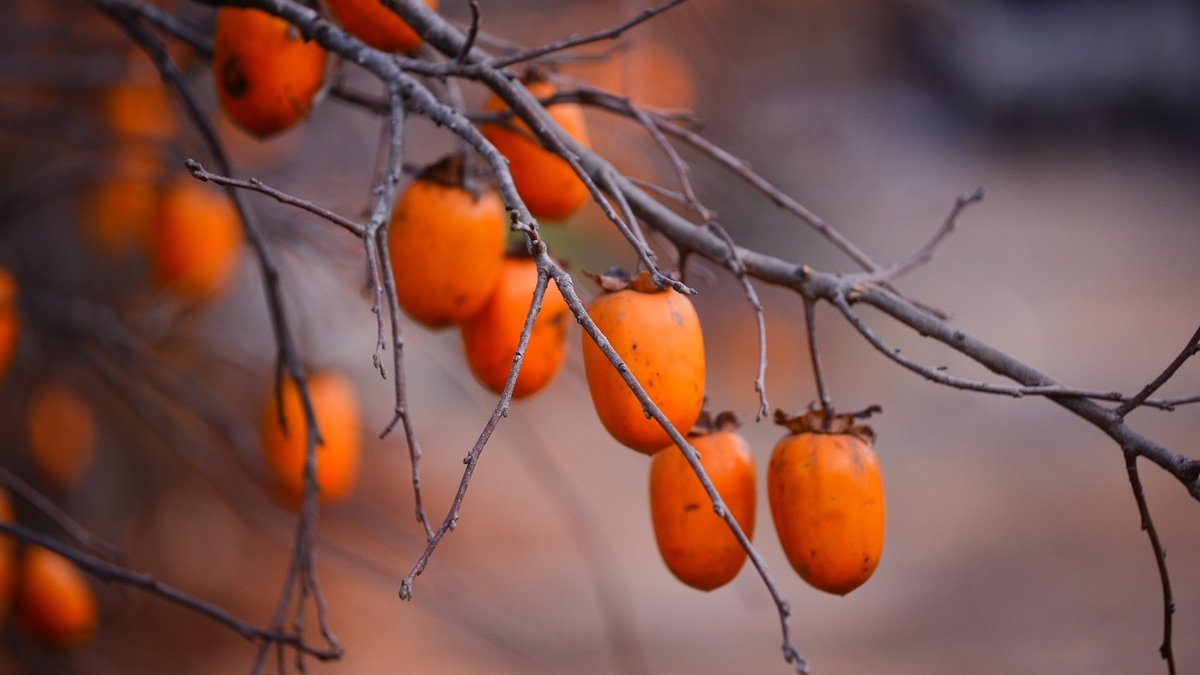
![[Photo] Prime Minister Pham Minh Chinh chairs the second meeting of the Steering Committee on private economic development.](https://vphoto.vietnam.vn/thumb/1200x675/vietnam/resource/IMAGE/2025/11/01/1762006716873_dsc-9145-jpg.webp)




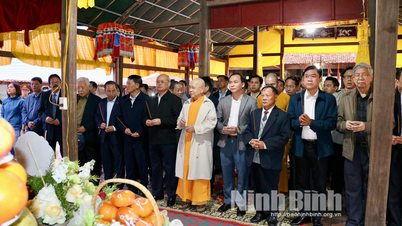



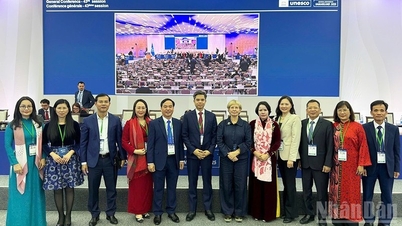

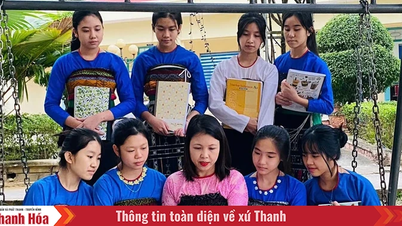

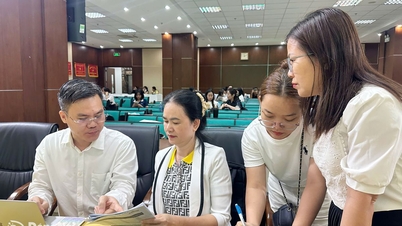
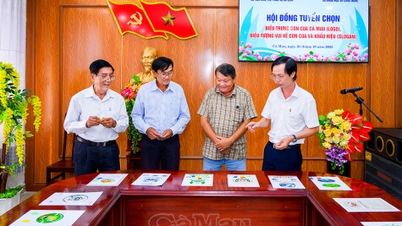





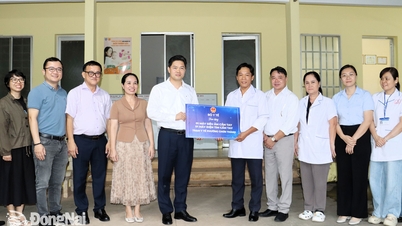
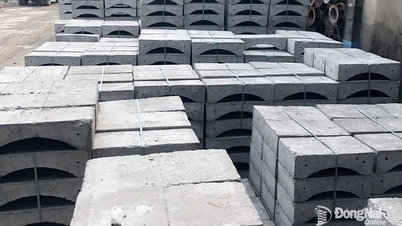
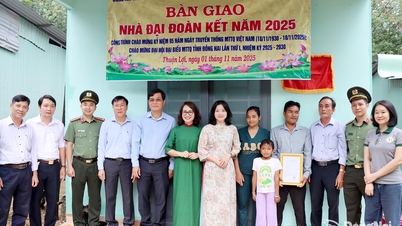
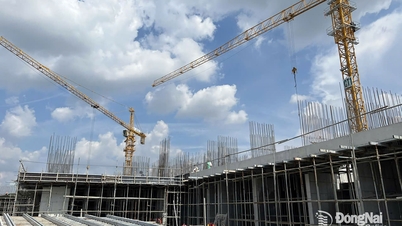
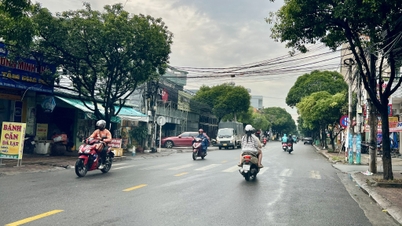
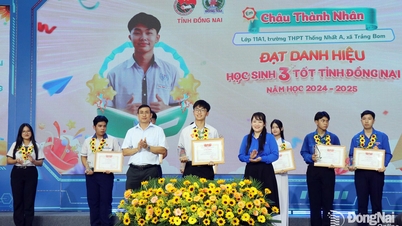










































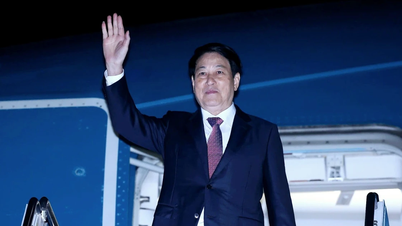


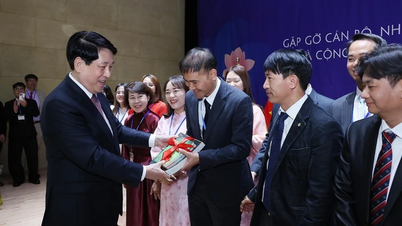
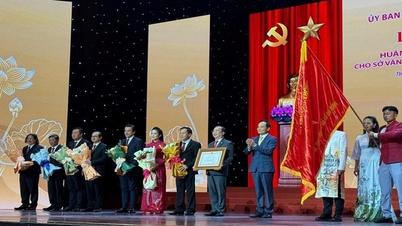
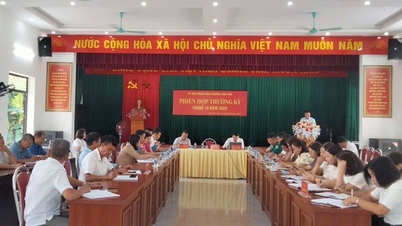

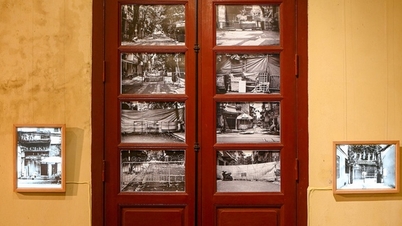


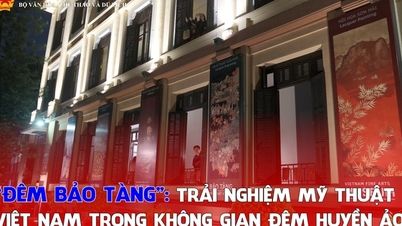
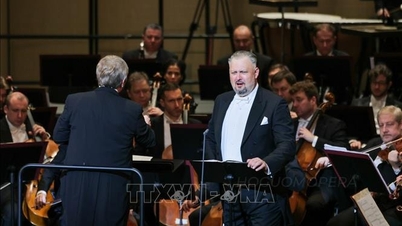





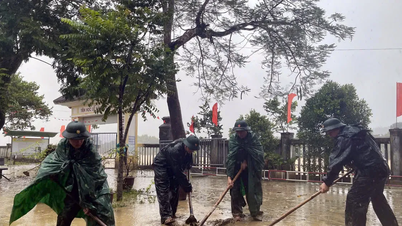














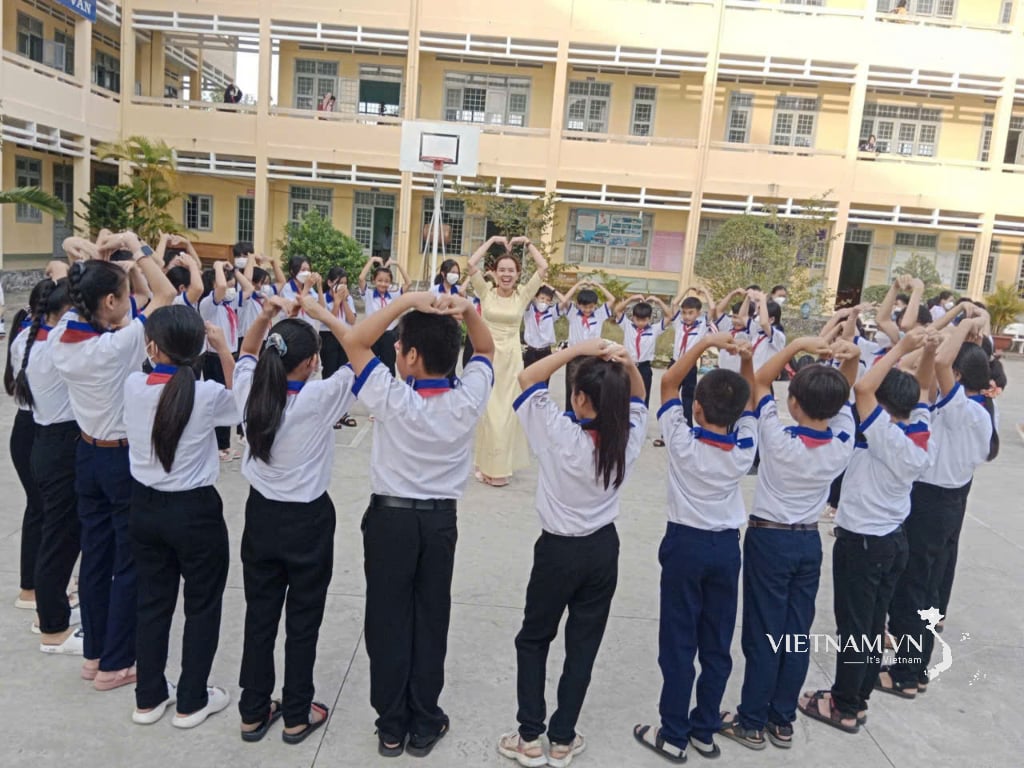


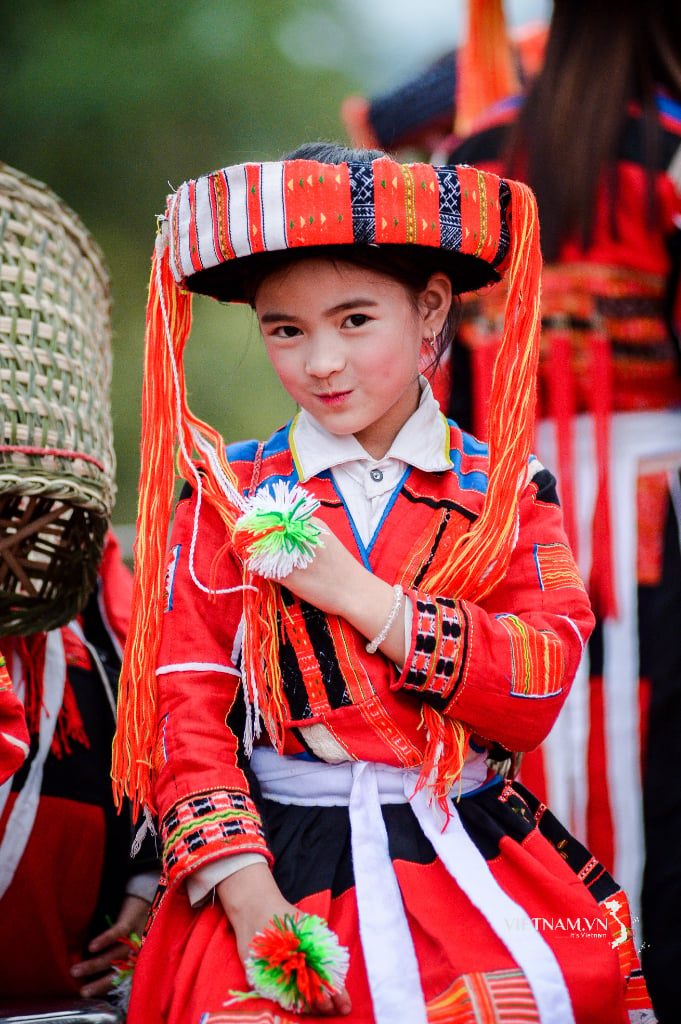
Comment (0)